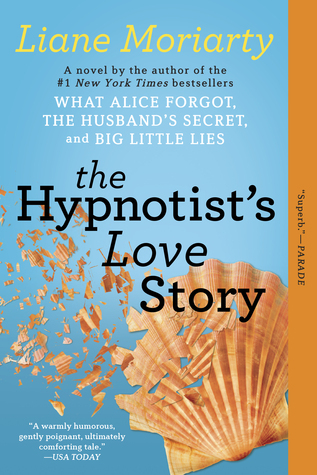
Nine Perfect Strangers
Book Description
Nine strangers arrive at a wellness retreat, each harboring their own secrets and scars, hoping to emerge transformed. What was meant to be a serene escape quickly spirals into a tense psychological unraveling as the enigmatic retreat leader pushes them beyond their limits. Tensions rise, friendships form and fracture, and buried truths surface in unexpected ways. As paranoia thickens and alliances shift, can they truly heal, or will their darkest fears consume them? In a world where trust is scarce, how far would you go to break free from your past?
Quick Book Summary
Nine Perfect Strangers follows a diverse group of individuals who convene at Tranquillum House, a remote wellness retreat in Australia, each seeking renewal, healing, or transformation. Led by the charismatic and unconventional Masha, a mysterious woman with her own motivations, the retreat promises holistic change but soon reveals unexpected psychological challenges. As the guests undergo increasingly invasive therapies, personal secrets and emotional traumas emerge. Bonds are tested as the group confronts both manufactured obstacles and their own histories. What began as a bid for tranquility devolves into a tense psychological drama, forcing each character to face their fears, confront their true selves, and decide if true change—and healing—is possible beyond the confines of a carefully crafted retreat.
Summary of Key Ideas
Table of Contents
The Illusion of Wellness and Transformation
Nine strangers arrive at Tranquillum House, drawn by promises of rejuvenation, a fresh start, or solace from pain. The guests, ranging from bestselling author Frances struggling with professional and personal disappointment, to the Marconi family mourning a tragic loss, and the fitness-obsessed Tony, each conceal personal turmoil. All are eager, though somewhat skeptical, about the unconventional holistic methods offered by Masha, the retreat's enigmatic leader. Right from the outset, it becomes evident that the retreat’s promises are masked in secrecy and the environment is more intense than anticipated.
Secrets, Trauma, and Emotional Baggage
Under Masha’s strict regimen, the guests endure a series of therapies—including strict silence, meditation, and controversial methods—that unsettle and challenge them. Masha and her staff tightly control the reality experienced by the participants, going so far as to involve unorthodox psychological experiments without the group’s full consent. As their stay progresses, carefully constructed boundaries erode, and psychological tensions surface, forcing the strangers to confront not only the retreat’s manipulations but their own suppressed fears and insecurities.
Manipulation and Control in Group Dynamics
The forced intimacy and unusual conditions at Tranquillum House spark unlikely alliances, friendships, and conflicts. Amid the trials, secrets are revealed: infidelities, grief over lost loved ones, and crises of identity come to light. Some guests find kinship in shared vulnerability, understanding their personal struggles mirrored in others. However, Masha’s increasingly extreme tactics sow mistrust and paranoia among the group, culminating in moments of rebellion and acts of courage as they attempt to reclaim agency over their experiences.
Connection, Empathy, and Vulnerability
As events spiral out of Masha’s control and the guests are forced into a heightened confrontation with their own truths, the lines blur between wellness and harm, therapy and manipulation. Each character's journey toward self-discovery is messy and unpredictable. Yet, the experience forces them to grapple genuinely with past pain, forging a path to self-acceptance—or at least, self-awareness—by the end of their ordeal.
Redemption and Self-Discovery
Ultimately, Nine Perfect Strangers delivers a meditation on human vulnerability and resilience. The novel explores how healing is not linear and often cannot be controlled or formulaically induced. Through the chaos of Tranquillum House, Moriarty posits that genuine transformation stems not from external interventions, but from confronting—and accepting—one’s own flawed humanity, often with the aid of empathy, connection, and sometimes chaos.
Download This Summary
Get a free PDF of this summary instantly — no email required.





